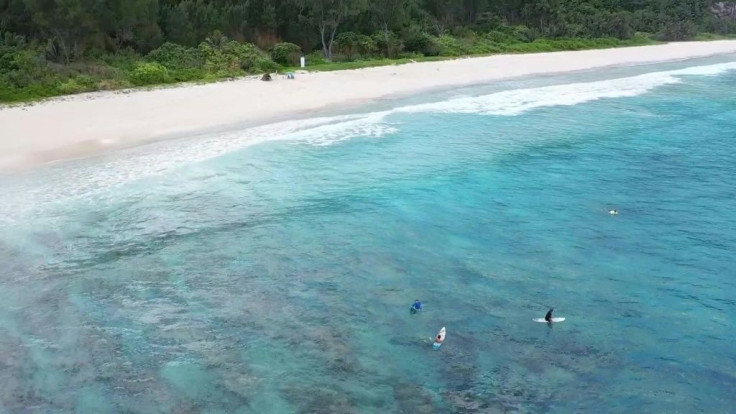Study Reveals How Marine Animals Protect Earth From Millions Of Viruses

KEY POINTS
- A study revealed how marine animals get rid of viruses in the ocean
- Animal species like sponges and crabs are most effective at reducing virus populations
- The findings of the study can be applied to reduce outbreaks at aquaculture farms
A new study explained how certain marine animals protect other species on Earth from viruses found in water. According to the authors of the study, these animals can effectively remove viral particles from their environment using various techniques.
Past studies have revealed that the ocean is home to millions of different virus species. In fact, a milliliter of water can contain as many as 10 million viruses.
Despite the number of viral particles in the ocean, they are effectively kept at bay by certain animals living in the water. In a new study published in the journal Nature, lead author Jennifer Welsh, a marine ecologist from the Royal Netherlands Institute for Sea Research, explained that there are certain marine animal species that are capable of getting rid of viruses in the ocean.
For the study, Welsh and her colleagues tested 10 different marine animal species. Out of this group, the researchers discovered that crabs, oysters, sponges and cockles are the most effective at reducing the population of viruses in the water.
Through lab experiments, the researchers learned that these animals get rid of the viruses either through active predation or passive means, such as by inadvertently creating a barrier between a virus and a potential host.
According to Welsh, the selected marine animals could wipe out almost an entire population of viruses in a sample within a few hours.
“In our experiments, the sponges reduced the presence of viruses by up to 94 percent within three hours,” she said in a statement. “Another experiment showed that the uptake of viruses happens indeed very quickly and effectively. Even if we offered new viruses to the water every 20 minutes, the sponges remained tremendously effective in removing viruses.”
Welsh and her colleagues noted that the findings of their study could be applied to aquaculture farming. Organisms like sponges can be used to protect farm populations from a possible disease outbreak. The marine animals can also be used to prevent an outbreak from reaching wild animal populations in the sea.
“With the addition of enough sponges, the danger of a virus outbreak would possibly be nipped in the bud,” Welsh stated. “The results of this research show that this would be good follow up research project.”
© Copyright IBTimes 2024. All rights reserved.





















